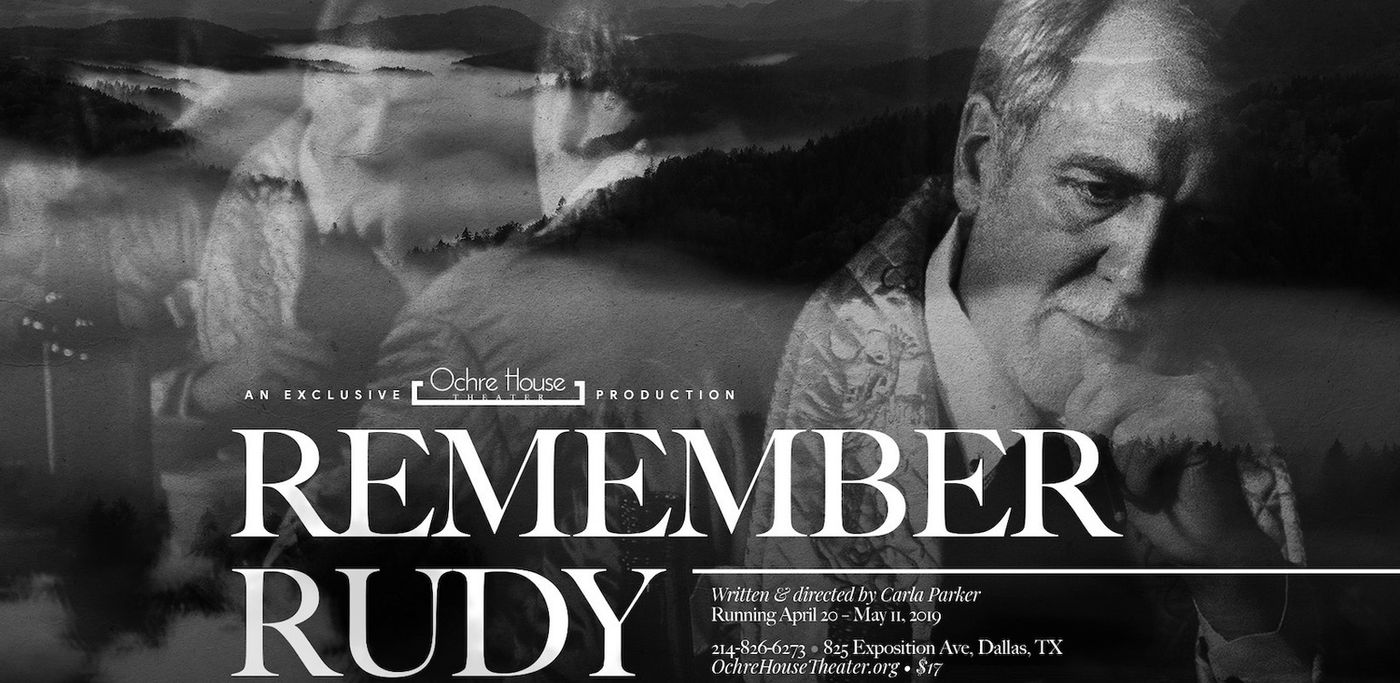Review: REMEMBER RUDY Strives for Significance at Ochre House Theater

Back in the mid-2000's, VH1 aired a reality show called The Surreal Life, in which washed up celebrities and former child stars lived together in a Hollywood mansion in the style of The Real World. Viewers could tune in week after week to watch once-beloved icons like Corey Feldman, Christopher Knight, and Gabrielle Carteris participate in household challenges during the day and debaucherous antics at night. Part of the show's appeal was getting to watch these stars behaving badly after having only known them from their well-behaved television and movie counterparts.
This same appeal is what drives most of the audience's interest in the new musical REMEMBER RUDY, directed by Carla Parker and running at the Ochre House Theater through May 11.
RUDY, with book and lyrics by Parker and music by Justin Locklear, presents the audience with roughly 24 hours in the life of Rudolph Raeburn (Kevin Grammer), a former child star who is now struggling to hold on to the last shreds of his career late in life. His agent is fed up with his chronic alcoholism, he's losing roles to Danny Bonaduce, and he's quite literally haunted by the ghost of his recently deceased son, Jake (Chris Sykes). Rudy's only hope, it seems, is to turn to his ex-wife. She's a famous talk show host, and an appearance on her couch might be just the publicity he needs to put his star back on the rise again.
More often than not, RUDY is a wickedly funny show. The script is at its best when its skewering various aspects of Hollywood culture. Act one, during one of Rudy's alcohol-induced hallucinations, contains a brutally funny take on the family-friendly sitcoms of the 60's and 70's. Marti Etheridge plays Mother with a delicious edge of barely suppressed domestic rage, and Monét Lerner's Sarah shows that the innocent older sister may not have always been so innocent after all. These stereotypes and tropes are played for even bigger laughs in the second act, when Rudy's sitcom takes an even more demented turn.
Another of the show's funniest moments comes during Etheridge's scenes as Pearl, Rudy's psychic ex-wife and star television host. Etheridge plays Pearl with a hilarious earnestness, doing all she can to convince audiences of her supernatural "talents" while performing a sultry burlesque number. Her comic timing and delivery is impeccable, which makes her more serious moments with Rudy later in the show all the more moving as she tearfully pushes him to move on from his pain.
Jake, Pearl and Rudy's deceased son, has his own issues moving on. Sykes plays Jake with a sympathetic pained expression, and his desire to reach out to his father again is - intentionally or not - the show's emotional core. It can be difficult to play self-pity, but Sykes mixes rage at Rudy's negligence with a desperate desire for real connection that makes the role come to life. What could be a one-note character becomes highly nuanced under Sykes's performance and Parker's direction.
Just as Rudy falls victim to the slow march of time, though, so too does this show at several points. When the script lingers too long on Rudy's bouts of self-loathing or destructive behavior, the musical becomes tragic seemingly without any point to that tragedy. It is difficult to see what the stakes are for Rudy and why this night, out of all nights, is of any significance to his redemption (or lack thereof). What would happen if Rudy didn't get the role he wanted? What would happen if his agent dropped him or if he lost touch with those closest to him forever?
These questions are never addressed, and so it can be difficult at times for audiences to care for the fate of a character when we aren't quite sure what that fate might be. Grammer gives Rudy some much needed charm and energy in his interactions with others, and his emotional chemistry with Etheridge in their scenes together might draw a few tears. But, when left on stage to himself, Grammer occasionally struggles to capture the audience's interest, which may be more an issue of the script rather than any fault of his own.
The remaining creative team of RUDY largely executes their designs perfectly. Matthew Posey and IZK Davies's set and scenic design transforms the intimate Ochre House Theater space into the claustrophobic sitting room of Rudy's L.A. mansion, but one of the show's most magical moments occurs when the walls shift and move to reveal the set of Rudy's old sitcom. The transition is seamless and inventive without distracting from the momentum of the show. Also notable is Locklear's puppet design, a delightful assortment of ghosts and ghouls that haunt Rudy during his long, hellish night.
Overall, REMEMBER RUDY entertains more than it bores, and this world-premiere musical holds the potential to tell a very funny and very moving story about one man's attempt to reclaim the life he once had, even if that life may not have been so great in the first place. Should Ochre House or any company choose to revisit RUDY in the future, there's a great opportunity to make this show even more memorable.
Reader Reviews
Videos

